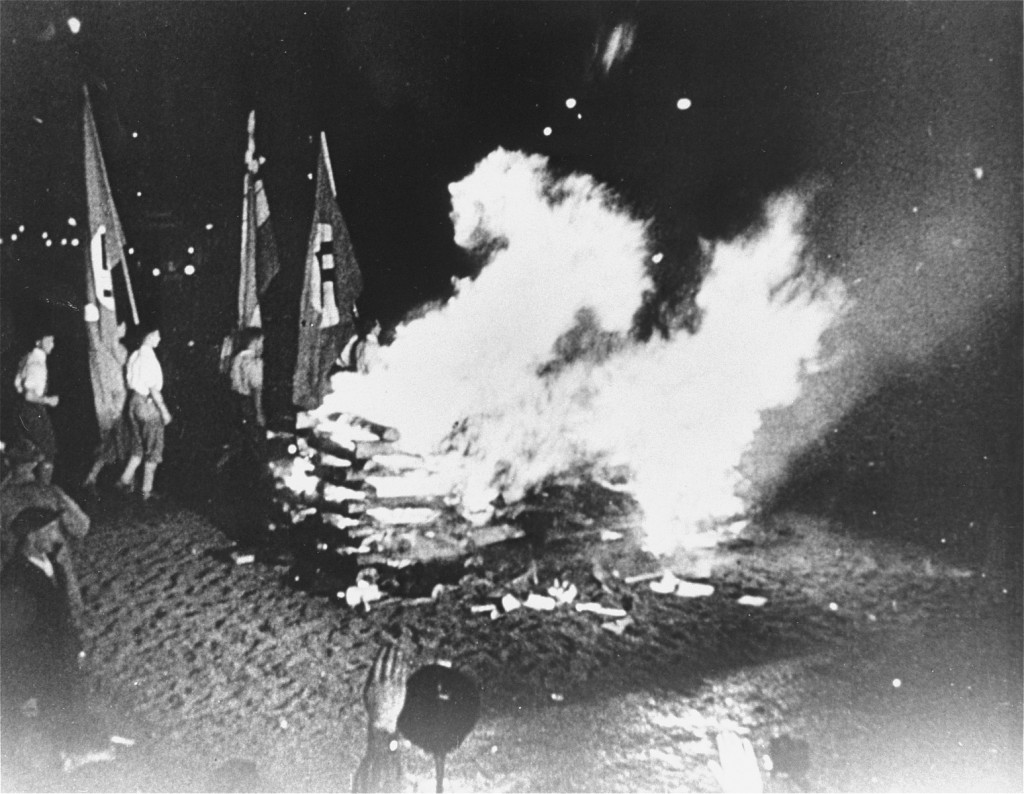
Carl von Ossietzky
In 1933, Nazi students at more than 30 German universities pillaged libraries in search of books they considered to be "un-German." Among the literary and political writings they threw into the flames were the works of Carl von Ossietzky.
Excerpt
But who is this Adolf Hitler? How great must the intellectual degeneration of a people be that in this foolish poltroon they see a leader, and therefore a personality to be emulated?
—article in the German newspaper "Die Weltbühne," Carl von Ossietzky, 1931
Fire Oath
"Fire oaths" were statements to be read as books were tossed to the flames. The German Student Association sent out a circular containing these statements before the book burnings. The fire oaths then accompanied the burning of works written by the individual authors named in the statements.
Against impudence and presumption
For veneration and reverence for the immortal German national spirit
Tuchosky and Ossietzky
Which of Carl von Ossietzky's Works were Burned?
Various articles in "Die Weltbühne"
Who was Carl von Ossietzky?
German pacifist Carl von Ossietzky (1889-1938) began his journalism career by writing anti-militarist articles. Military service during World War I confirmed Ossietzky's anti-war beliefs. He wrote a book advancing the pacifist cause and was jailed twice for exposing the clandestine rearmament policy of the post-World War I German army. As editor of a leading political journal of the Weimar period, he described Adolf Hitler as a "foolish poltroon."
After the Nazis came to power in 1933, they not only burned Carl von Ossietzky's collected articles, but, following the Reichstag fire, arrested him and incarcerated him in various concentration camps. In 1936, while still imprisoned in the concentration camp system, Ossietzky was awarded the Nobel Peace Prize. The Nazi regime demanded that he decline the prize and refused to release him from internment. Ill with tuberculosis and weakened by torture, Ossietzky was eventually released but kept under constant surveillance until his death in 1938.
Critical Thinking Questions
If Jews were the principal target during the Holocaust, why were books written by non-Jewish authors burned?
How did the German public react to the book burnings? What were some of the reactions outside of Germany?
Why do oppressive regimes promote or support censorship and book burning? How might this be a warning sign of mass atrocity?

